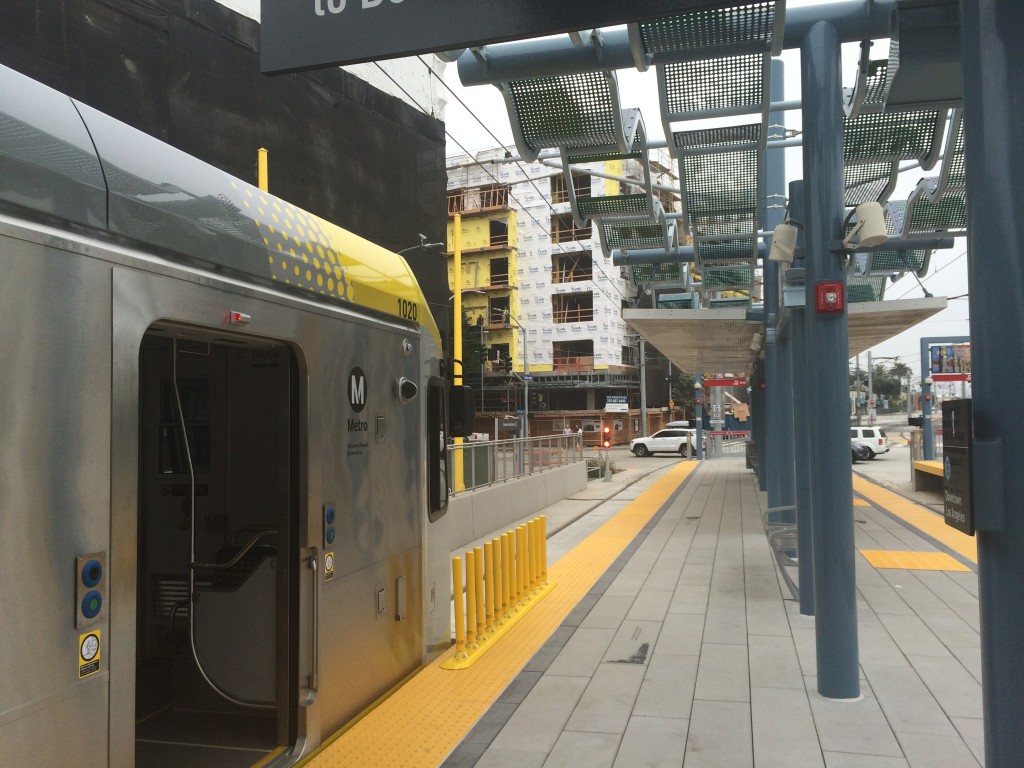
On Friday, California sued Huntington Beach over the city’s NIMBY rejection of new housing and overall non-compliance with state housing laws. But it turns out the city was already suing California over its housing streamlining law, SB 35 (Wiener, 2017), in a suit filed on January 17th (City of Huntington Beach v. State of California, Case No. 30-201-01044945-CU-WM-CJC). The lawsuit could be important for resolving a significant question about how much the state can intrude on local land use authority. And my guess is that it will not end well for Huntington Beach’s NIMBYs and their elected official allies.
SB 35, the state law that Huntington Beach is suing over, requires streamlined permitting for certain housing projects in jurisdictions like Huntington Beach, which are behind on meeting state-derived housing targets. Huntington Beach alleges that because it’s a “charter city” under the state constitution, SB 35 shouldn’t apply to it (and others like it).
So what’s a “charter city”? The California Constitution allows cities to become charter cities in order to pass local laws that supersede state laws under certain conditions. Of California’s 478 cities, 108 are charter cities.
Specifically, Huntington Beach officials allege that SB 35’s housing streamlining regime interferes with their “municipal affairs” of land use decision-making, which are otherwise protected from state preemption absent certain circumstances.
As a result, the case will hinge on how the court interprets “municipal affairs,” as defined in the state constitution. As the League of California Cities helpfully describes, charter cities have sovereignty over at least these four areas of “municipal affairs” under the constitution:
- “city police force”
- “subgovernment in all or part of a city”
- “conduct of city elections”
- “the manner in which . . . municipal officers [are] elected.”
Notably, “land use” is not included in the list. And yet Huntington Beach’s attorneys allege in the complaint that their land use sovereignty should be considered a “municipal affair.” Historically, it’s been left up to the courts to determine if land use counts, and they have typically ruled that land use does in fact constitute a “municipal affair.”
But there’s a big exception: when there’s a strong state interest requiring local preemption. In this case, it’s hard to argue that the housing shortage is not a matter of serious statewide concern requiring state intervention. Furthermore, local NIMBY restrictions on development have been a central factor in the lack of production statewide, including restrictive zoning and byzantine permitting processes.
Given the overriding importance of housing production to stabilize prices across the state, my guess is that Huntington Beach leaders will have a hard time making their case in court that this housing streamlining law shouldn’t apply within their borders. And an adverse decision for them would solidify the law’s applicability to the other 107 charter cities in the state.
If they lose this fight, NIMBYs and their allies will still have a few other means to push back against state laws to boost housing production. But they will lose an important judicial avenue with an adverse decision. If so, those seeking more affordable places to live in the state will be better off as a result.
 This has been a relatively eventful year in California land use, given the state’s severe housing shortage, and I’ll be speaking about it this morning at the 14th Annual “CEQA Year In Review” Conference in San Francisco. The morning panel will cover “Streamlining CEQA for Housing Approvals.”
This has been a relatively eventful year in California land use, given the state’s severe housing shortage, and I’ll be speaking about it this morning at the 14th Annual “CEQA Year In Review” Conference in San Francisco. The morning panel will cover “Streamlining CEQA for Housing Approvals.”
I’ll cover the state’s relatively lackluster effort to date to streamline environmental review for infill housing projects, which has had limited success in allowing environmentally beneficial infill projects to avoid costly and time-consuming environmental review. And as my colleague Eric Biber has found, much of the problem traces to local government decisions to make approvals discretionary for larger projects, which automatically triggers the environmental review process.
I’ll also discuss potentially promising state-level effort to require upzoning around major transit, such as this past year’s AB 2923 to upzone BART-owned parcels as well as this coming session’s SB 50 debate. But even if the state can accomplish mandatory upzoning, locals will still try to stop new projects by instituting lengthy approval processes with multiple veto points. So the next phase in the battle to address the housing shortage will probably be to limit local permitting discretion over projects near major transit.
I look forward to the discussion and hope to see you at the conference today!
For those interested in the latest legislative updates and debates on housing and land use in California, I’ll be speaking this weekend at the Planning and Conservation League’s annual “Environmental Assembly” conference in Sacramento. I’ll be on an afternoon panel with:
- Kip Lipper, Chief Policy Adviser on Energy and Environment, Office of Senate President Pro Tem Kevin de León
- Winter King, Shute Mihaly & Weinberger, LLP
- Doug Carstens, Chatten-Brown & Carstens, LLP
We’ll discuss recent updates to the California Environmental Quality Act under SB 743, recent legislation like SB 35, as well as pending legislation like SB 827.
More details here:
What: Planning and Conservation League’s 2018 California Environmental Assembly
When: Saturday, February 24, 2018, registration and breakfast starts at 7:30 am
Where: McGeorge School 3200 5th Ave, Sacramento, CA 95817
The tide is turning against people who claim to be environmentalists but oppose urban development. Grist ran a nice profile on the burgeoning YIMBY (yes in my backyard) movement of people frustrated with high housing costs and the environmental impacts of pushing new development further out over open space.
The piece features State Senator Scott Wiener, who has taken up the legislative mantle for these YIMBY efforts and authored SB 35, one of the first state laws to start limiting local discretion over infill projects:
Environmentalists are usually thought of as folks who are trying to stop something: a destructive dam, an oil export terminal, a risky pipeline. But when it comes to housing, new-school environmentalists — like Wiener — understand that it’s necessary to support things, too. To meet California’s ambitious goals to cut pollution and greenhouse gas emissions, regulators say the state must build dense, walkable neighborhoods that allow people to ditch their cars.
The article includes a wonderfully succinct quote about why promoting infill is pro-environment, and why fighting infill is an anti-environmental act:
If you slow down development in cities, houses will sprawl out over farmland, and people will wind up making longer commutes. “You can’t legitimately call yourself an environmentalist,” Wiener says, “unless you support dense housing in walkable neighborhoods with public transportation.”
In many ways, this fight is generational and class-based, as older homeowners fight to preserve their artificially inflated and low-taxed real estate investments by choking off new supply. But as more people find themselves in the “have-nots” camp, homeowner groups will lose more battles to these YIMBYs.
 California legislators are in the final week of the session, and there’s a scramble on bills related to housing and renewable energy. Here’s a rundown:
California legislators are in the final week of the session, and there’s a scramble on bills related to housing and renewable energy. Here’s a rundown:
Housing
What was supposed to be the “Year of Housing” to address the state’s severe, decades-long undersupply of homes, is turning out to be pretty weak. There are basically three bills in play, out of the 150 or so to start the session:
- SB 2 (Atkins) would impose a $75-225 fee on individual California real estate transactions (which requires two-thirds vote);
- SB 3 (Beall) would authorize a $4 billion bond measure for California’s November 2018 general election ballot (which requires two-thirds vote and then approval by voters); and
- SB 35 Wiener) to force recalcitrant cities and counties to approve new infill housing projects without discretionary review.
SB 35 is the most promising, although its prevailing wage requirement will make it essentially worthless in under-performing markets in the state. All three bills are being bundled, and Democrats in the Assembly are skittish about voting for the SB 3 real estate fee in particular. If SB 2 goes down, will legislative leaders peal off SB 3 and SB 35 for separate votes, which might be successful on their own? And if they do strip SB 2 from the package, will the other two bills lose support? Stay tuned.
Meanwhile, a sleeper bill on housing is AB 1568 (Bloom), which improves infrastructure finance districts for infill projects. Using the acronym NIFTI (Neighborhood Infill Finance and Transit Improvements Act), the bill would allow these districts to capture future increases in revenue from sources like sales and occupancy taxes to pay for infrastructure improvements up front. It’s up for a floor vote shortly.
But in the end, of the big housing bundle, only SB 35 shows real promise for lasting reform by removing authority from local governments on land use. The affordable housing money is otherwise badly needed, but it’s ultimately not going to solve much of the problem. And affordable housing suffers from increased costs due to the same local land use policies that thwart market-rate housing, such as high parking requirements and limits on density. So much of these dollars will be wasted without broader land use reform.
Renewable Energy
The big bill is SB 100 (de Leon) to boost the renewable mandate in the state to 60% (from 50%) by 2030, plus a new 100% target by 2045. The goals have broad support, but the details are now creating opposition from utilities. A defeat on this bill would be a big blow, as utilities (despite their opposition) need the stronger market signal and legal permission to procure more renewables now while the federal tax credit — set to sunset soon — is still in effect.
Meanwhile, AB 726 (Holden) to restart the process of integrating California’s grid with other western states is apparently stalling. Some environmental groups and labor unions are concerned with how it would get implemented. It’s too bad, because a regional grid is going to be necessary to meet California’s long-term climate and energy goals in an affordable manner. Plus, it could help solidify political support for renewables in the states that join us, by building up a domestic clean tech industry in each of those states. If it fails this year, climate advocates should prioritize it for next year.
So on both housing and energy, there’s a lot to follow in the Golden State this week. I’ll blog again on any successful bills once the dust settles.


